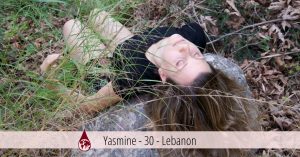
Discovering your menstruation as a spiritual practice
Yasmine understands her menstruation as a spiritual practice and shares in this interview how she is connecting more with her own body through cycle awareness.
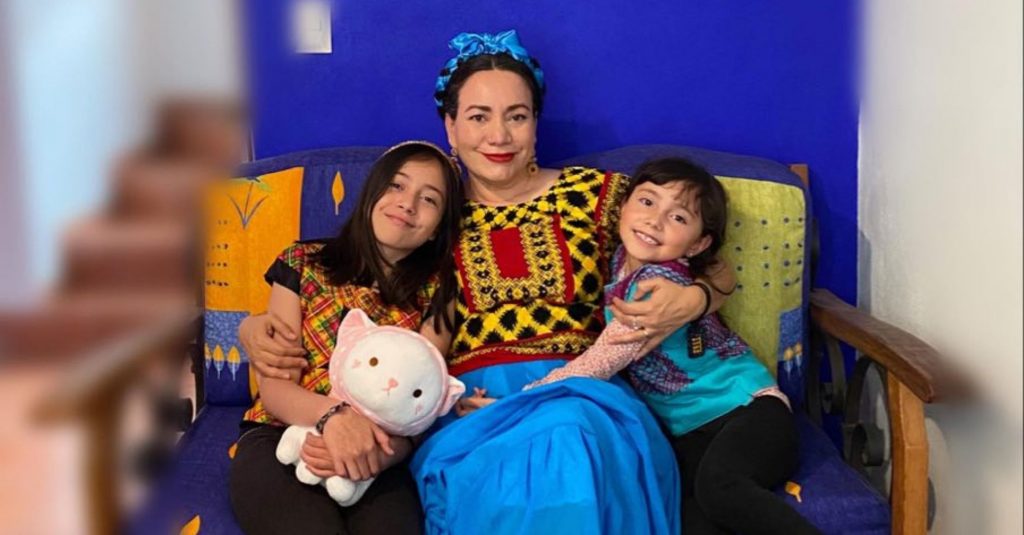
In different countries, the first menstruation is perceived and even celebrated differently. You may be wondering: celebrating the first period? That’s exactly what Mari and her grandma did. Mari Silvia Marín Pineda tells you about her first period in this guest article to bring you closer to a beautiful tradition from Mexico.
I am an artistically talented woman from Juchitán, Oaxaca. A country with a narrow territorial belt. There where the Zapotec souls vibrate wonderfully as successors of the Mayas. I was born in the fall of 1976, the day after All Saints’ Day, “when the soul of the Xandú said goodbye,” said my abuelita (Spanish for great-grandmother).
Currently, I live in Metepec, Mexico. I owe my pilgrimage to love. I got married, and like the Adelitas, I came to revolutionize in a place different from my tiny home. And now here I am, writing a short story of female nature, my first menstrual period, which gave me two daughters: Natalia, 11 years old, and Renata, 7 years old. I was blessed: By the ancestry that I carry in my spirit. By the inheritances without a will. But much more valuable than the mines of King Solomon.
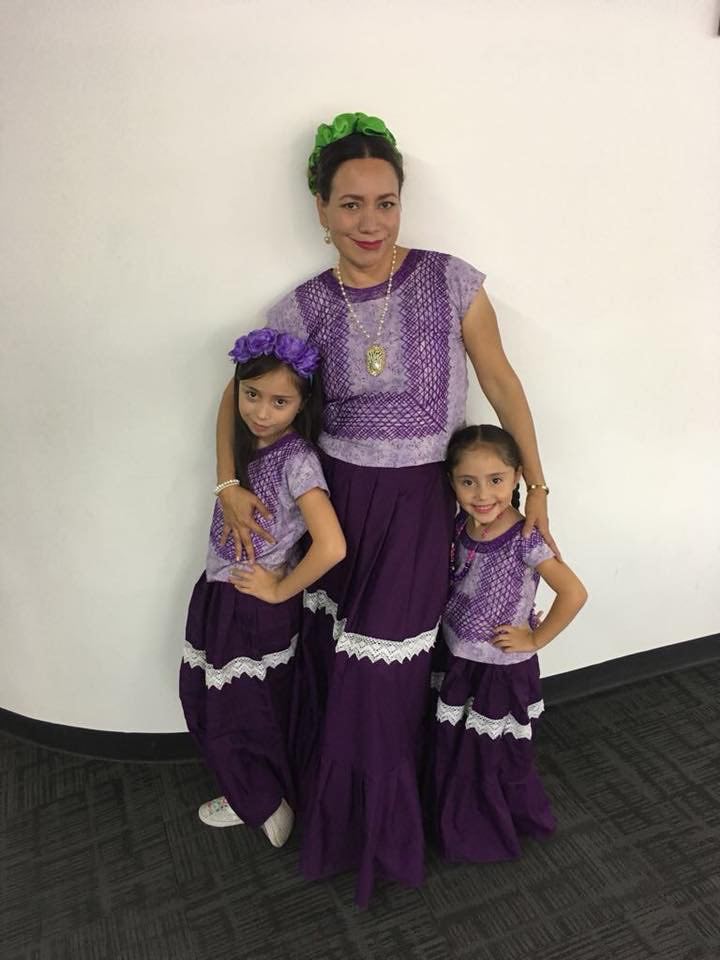
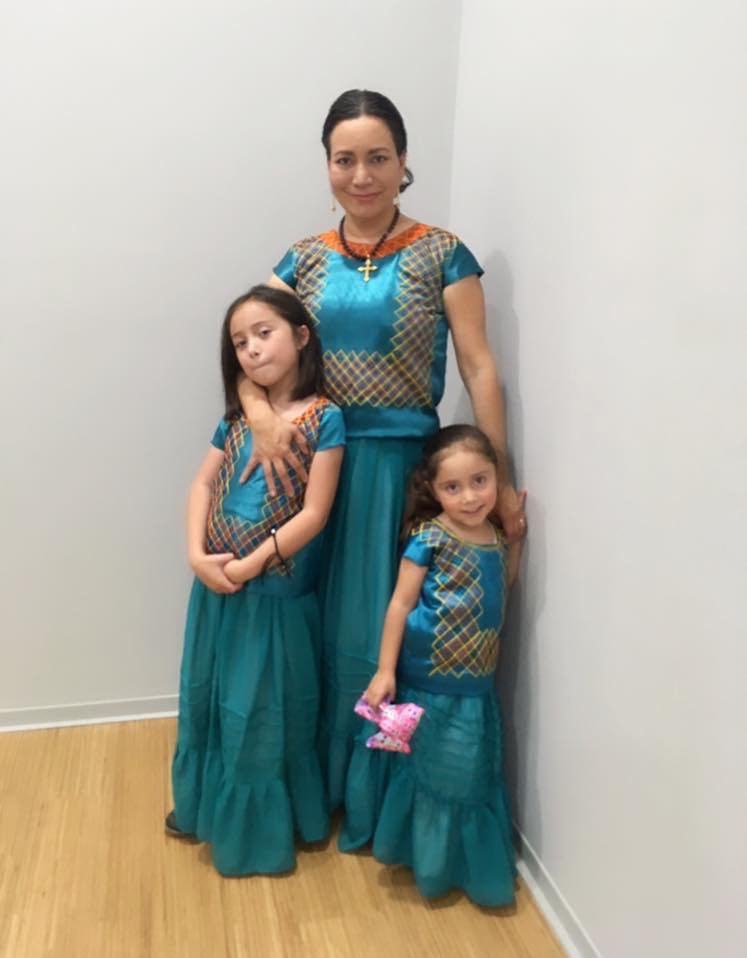
Photo Credits: Mari Silvia
I knew absolutely nothing about periods. One day at school, my classmates asked me about my “present” (Spanish “regalo”, close to “regla” for menstruation). I thought they meant my ruler (Spanish “regla”). Of course, the entire class burst out laughing. I was still very clueless at the time. I was only 10 years old, unlike my classmates, some of whom were already 13 or 14 years old.
Having been raised by my Abuelita as a mother figure, I came to her that afternoon. The question burned on my tongue, “Abuelita, what is a period?”
My Abuelita was a very old woman; that’s what we called adults. Not to discriminate against her but with respect for the wisdom, she brought as a grandmother at 81 years old. She was not at all surprised by such a question. She silently put down her coffee, sat down, looked at me, and said, “Now that the coffee is ready, I’m going to tell you all about menstruation. Celebrating your first period will follow next.” She was a Zapotec woman, and with all the calmness in the world, she said, “seven guenda guará stiu” (your illness will come).
She told me that it was blood coming from my womb space. It was a warning that I could become a mother. Every woman on earth would have this encounter in life to create life herself. I should not be afraid. When the time was right, when God gave me life, she would be by my side and accompany me. I was not scared at that time. Because I was still a little girl: Naughty and spirited, who liked to play with boys and girls alike.

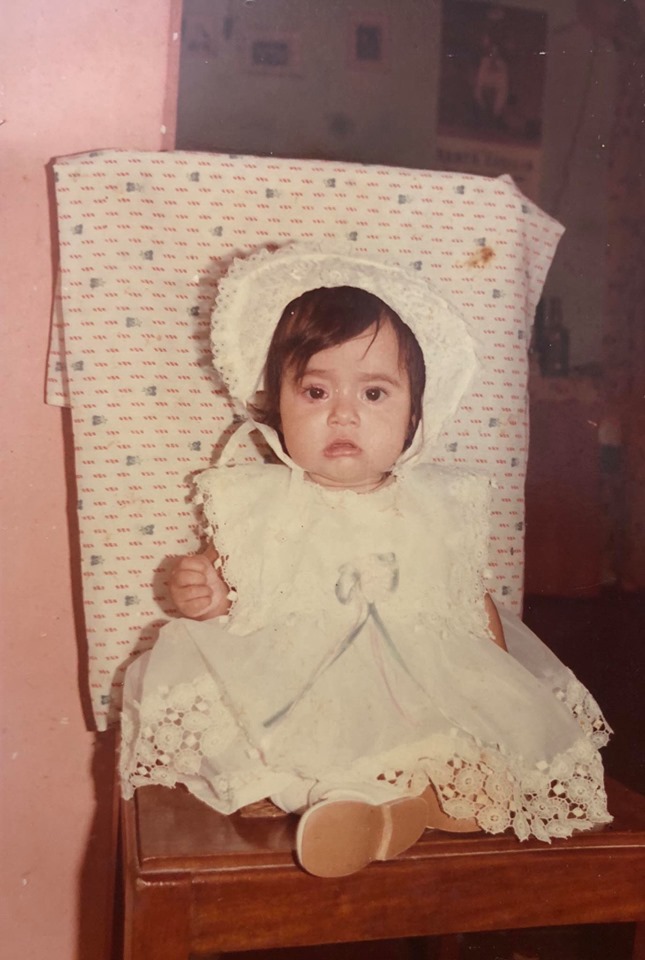
Photo Credits: Mari Silvia
On January 11, 1989, at 12 years and 2 months, it came – LA MENARCA, my first menstruation. It was a winter night, after playing outside all day with my friends. Before I went to sleep, I changed in front of my sister, who was 6 years older than me. She was lying in bed reading when she said, “You got your period.” I looked in my underpants and discovered this big red spot. I went into a stupor. Not that I didn’t know how to move, but because I didn’t know what to do.
I suddenly had the urge to call my abuelita. Thank God, I was lucky enough to have her accompany me in my life. My sister got up from the bed and gave me a pad. I quickly went to the bathroom to place it in my underpants. Of course, I had to go back to the room to ask my sister for help. After all, I didn’t know how to put on a pad.
After I was able to place the pad, I fled into the arms of my abuelita and said, “ma’biete guendaguará stine” (I got my menstruation as a gift). She then hugged me and said, “Your body has now become a woman, but your heart is still childlike. I have to take care of you now more than ever.”
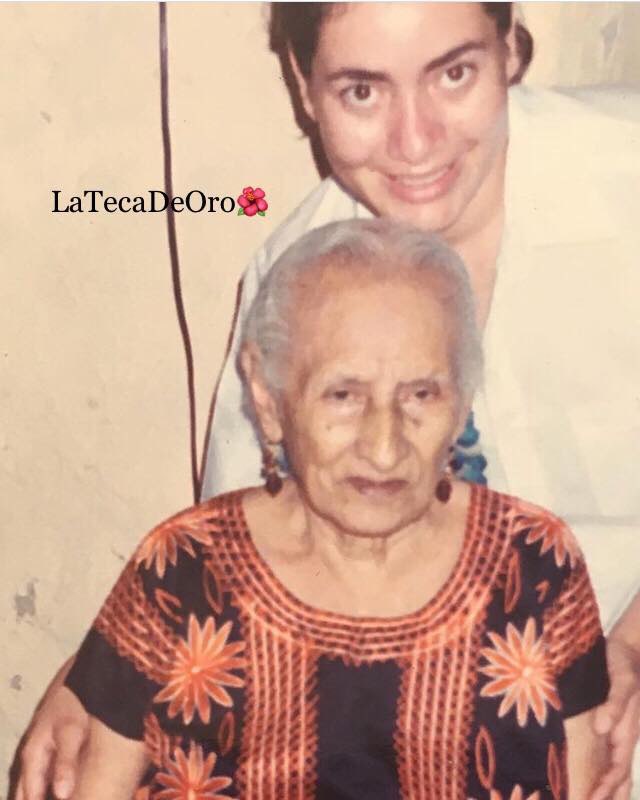
You are now wondering how I felt at that moment. I just felt safe in the arms of my old Abuelita. Celebrating my first period was about to happen. She lit a candle, said a prayer and a commendation to God and the saints. My silence was part of the ritual to let her pray, and I let her intercede for my happiness.
The next day there were no more pads, so my abuelita took a cotton cloth and started making strips out of it. She arranged them in a rectangle and left me about a dozen. She told me that they were not to be thrown away but washed and put in the sun to dry. Completely without chlorine and only with soap. This washing of my cloths or fabrics went on for several years, maybe three more years. This is also a noble way not to pollute the environment and to treat nature with love.
On January 12, the 2nd day of my first period, Inés Felipe prepared a big bathtub outside in the sun for me. This was how my menarca started, and we were going to celebrate my first period. The bathtub was enriched with jasmine flowers, leaves from the cordoncillo plant, orange blossoms, rose petals from Castile, basil, rosemary and, a bit of anise. To finish, she added some Eaux de Cologne “Sanborns”. Simply because it smelled delicious.
After mixing everything, she asked me into the bathtub. So I bathed in the sun, surrounded by these fantastic smells. She stood next to the bathtub and wetted my head with a “jícara”, a unique bowl. Meanwhile, she was whispering thanks for my life and my future. I spent about 15 minutes in the bathtub. Celebrating and loving the first period: it is a special feeling.
Afterward, she wrapped me in a towel and took me into the house. She put me in a bed and took a thermal ointment called “vaquita”. She then began to rub my body with a gentle massage. Starting with the head, then the neck, the arms, my belly – the ointment warmed my abdomen. She said that as a child I had sat in cold as well as warm places. That caused my organs to become cold or warm. With this bath and ointment, my body will attain the ideal warmth and avoid unnecessary discomfort. She continued to anoint me, down to my feet, and when she was finished, she covered me.
I stayed in bed like this all day. She gave me chicken broth and corn grits to eat, nothing irritating or sour. I had the same food for the next three days when I had my period. I was not allowed to bathe for the remaining days of my period, only washing my face and armpits and constantly changing my pads. When my period was over, I resumed living normally but very carefully to avoid sudden temperature changes.
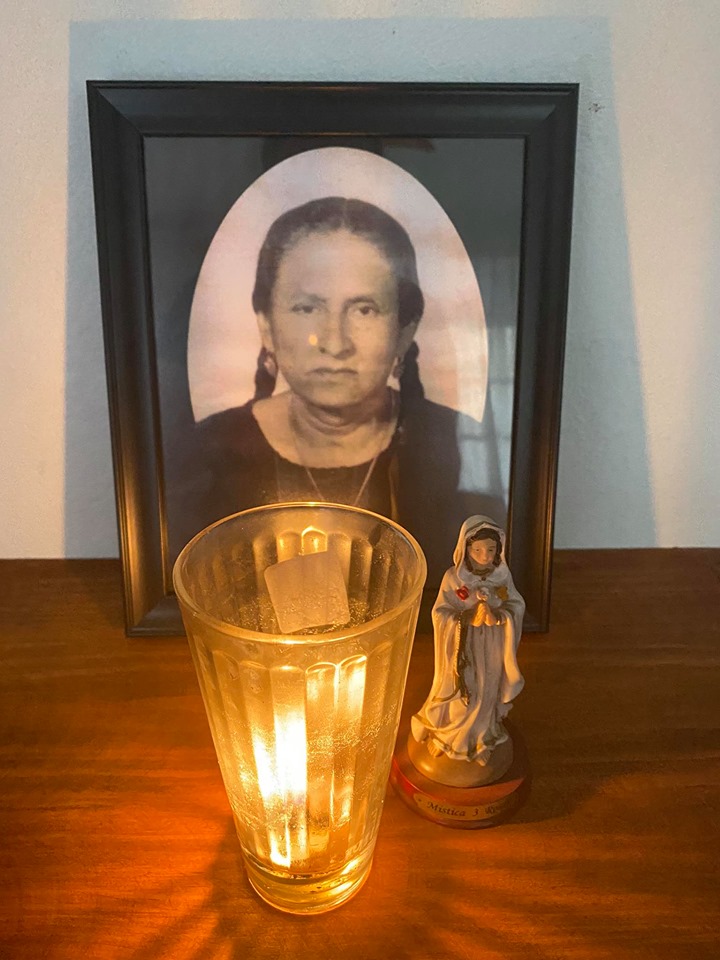
As she anointed me, she prayed in a low voice to the higher power for my life. Nothing structured, but the women of my culture did it this way. They prayed softly as they anointed you. They envelop you with their softness, and you just lay still. My silence is part of the first-period ritual.
I didn’t remember if the girls in my class were also celebrating their first period. But I never forget that a wise woman raised me. One of the old ones who had a particular love language, and I knew it without asking.
So my life went along, in harmony with my nature, without pain or disturbance. A cycle of 45 days for the first few years and when I was in my adulthood, 28 days. I never complained when my period came. On the contrary, it was synonymous with everything going well inside me: I had harmonious pregnancies – healthy and full of love. Now I have two girls; Natalia is about to have her first menstruation. I talked to her about my menarca and told her that my abuelita celebrated my first period with me. My daughter is happy to be part of this ritual.
There is no fear, no taboo and no rejection of something natural. I have lived it this way from the beginning with the immense security that my abuelita gave me. That has marked me for life, and I believe beyond my life through my descendants.
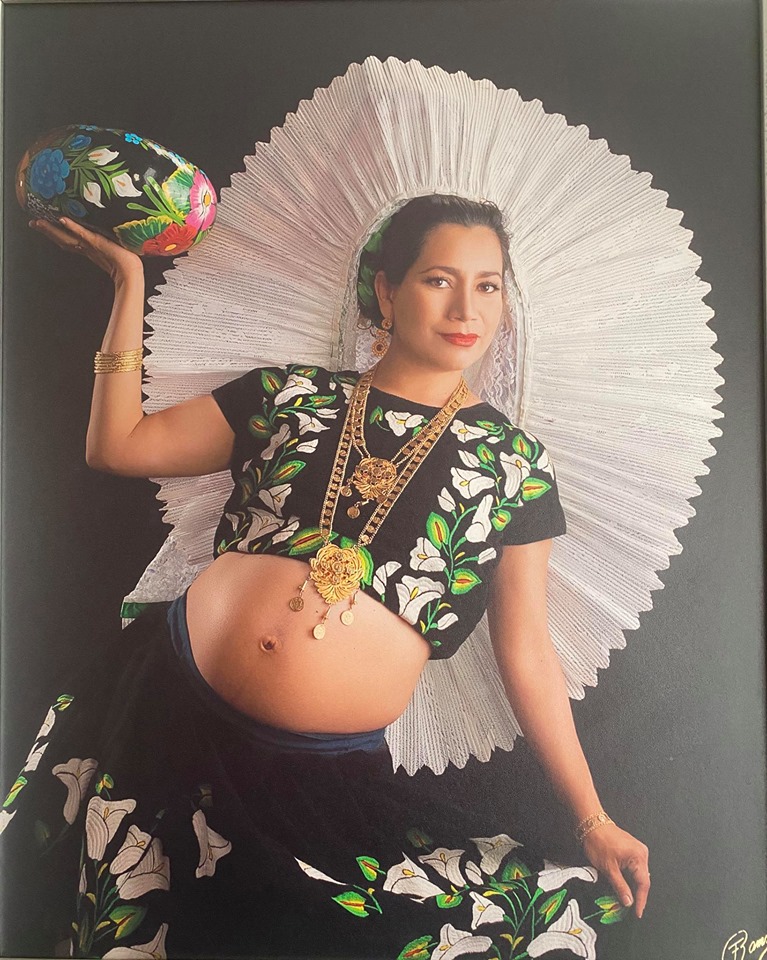

Photo Credits: Mari Silvia
I share this life story of my tribe and the ritual of my first period with all my heart. So that these rituals are not lost, and we can all celebrate our first period. But most of all, to honor this great woman, my abuelita. Without speaking Spanish or having a primary education, she left an incredible legacy worth sharing.
My Abuelita died in the spring of 2000, born in Juchitàn, Oaxaca, on April 20, 1905, and bore fruit through her only son, grandchildren, and great-grandchildren.
As long as I live, she will be in my suns and especially my moons.
Mari Silvia Marín Pineda
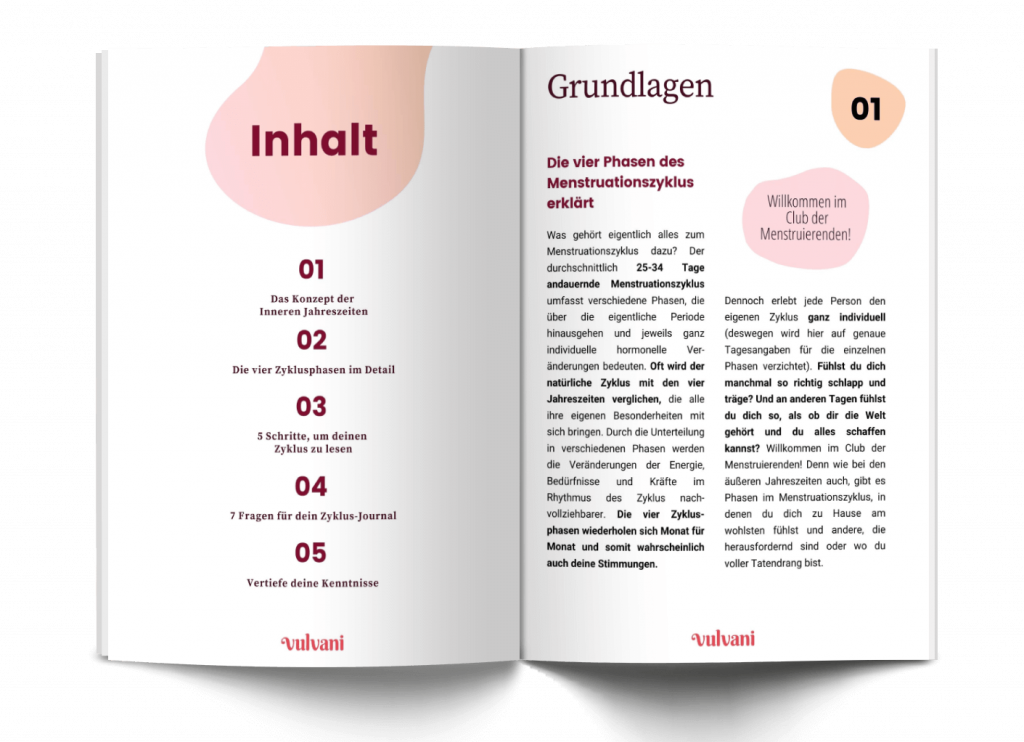


Yasmine understands her menstruation as a spiritual practice and shares in this interview how she is connecting more with her own body through cycle awareness.

What options are there for male birth control? Ailsa delivers an overview of what is available now, and what may come in the future.
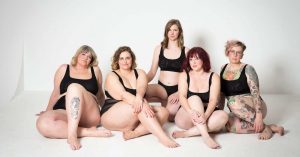
Sustainable underwear? The founders of TUKEA talk about fair labour conditions, body diversity and body literacy.
…and empower countless women to make empowered choices about their bodies!

